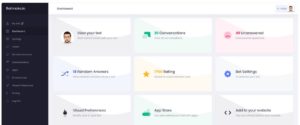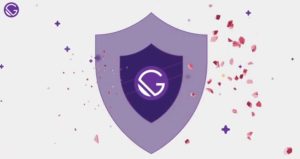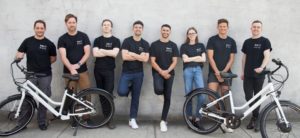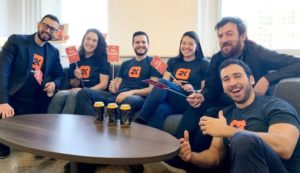Boy Van Amstel from The Netherlands has dabbled in the world of apps since his college days and this eventually led him to become an independent app developer. Boy has been developing variety of apps and has a company called Danger Cove. He has worked as a team member and as a soloprenuer as well. Boy’s current app creations include Image & Video apps like Carbonize – a customizable image generator and Pipvid2 – that adds picture-in-picture mode to VLC and QuickTime and music apps like Denied – which automatically skips music user dislikes, Relax- that mutes internal speakers and pauses on disconnecting music app headphones plays.
In an interview with USTechTimes.com Boy talks about his journey and shares tips on product and business development. You can learn more about him on boy.sh or @boyvanamstel.
1.Please tell me about your personal background, and what are you working on currently?
I am an app maker from Utrecht, The Netherlands. Tinkering and making stuff has been a hobby for me as long as I can remember. After college I joined an internet agency as a web developer, freelancing on the side. In 2011 I started the company I have now, called Danger Cove, making productivity and music apps for MacOS.
I was fortunate enough to co-found a startup (hedge.video) in 2015 and I worked for Blendle (blendle.com) as a mobile team lead and iOS developer after that. These were amazing experiences and a welcome change of scenery after working alone for over five years. With renewed energy, I’m now in the process of making Danger Cove profitable again. Its revival is funded by selling video games. (shorts.boy.sh/2020/01/01/turning-my-game-collection-into-runway)
The last app I launched is called Timeless (usetimeless.app) and aims to decrease time anxiety and stress by replacing the clock on your computer with something more subtle. The response so far has been amazing, with many people telling me it’s positively affected the way they work.
2.What motivated you to start with your company?
I desperately wanted to work on my own products instead of client projects.
Freelancing and working at an agency always meant investing in somebody else’s venture. I get burned out pretty quickly when I don’t feel connected to projects I work on. Building my own products means I get to choose things that I feel passionate about or want to use myself.
3.How have you attracted users and grown your company from the start?
The first app I launched with my then co-founder was called Porthole. It enabled streaming all the audio from your Mac to multiple AirPlay speakers in sync, long before Apple implemented it in MacOS.
Without realizing it, Spotify launched its music service in Germany the same day we announced Porthole. People were looking for an app to stream Spotify to their AirPlay speakers and Porthole was it. I couldn’t have planned it better if I tried. We sold a lot of copies that day and it kept growing from there.
Luck played a substantial part.
4.What’s your business model, and how have you grown your revenue? What strategy worked best?
Most of my apps have a feature-limited trial version that can be unlocked by purchasing a license. I have some paid-upfront apps in the Mac App Store and experimented with a Tip Jar last year.
Looking back at how I’ve handled growth over the years, I could’ve done better. It’s common knowledge that most apps are struggling to make money and mine are no exception. I’m not a fan of subscriptions and that limits my options.
If I figure out which strategy works best, I’ll let you know.
I cannot recommend the Tip Jar by the way. My theory was that I could focus more on features that I wanted to build, instead of looking for things that would make people convert. While there were some people who loved the idea and used the Tip Jar several times. Most just enjoyed the free app and consequently my revenue tanked. (dangercove.com/news/adjusting-prices/)
5.How much funding have you raised in total so far? When was the recent funding round and future plans?
I’ve been bootstrapping Danger Cove. Porthole became profitable nearly instantly, allowing me to work on apps full-time after my co-founder and I split up.
6.What are some marketing tips to help maximize the success of a product launch?
Announce your product ahead of launching it. Invest time constructing a narrative while you work on it. Invent a story that convinces people they need your product.
With Timeless, I posted it on BetaList, Reddit and requested feedback for months during development. I have a list of press contacts that I kept up to date. Some wrote about it during the beta.
It’s a lot easier to launch a product that people are already familiar with and are looking forward to.
I also recommend reading Dan Counsell’s post on getting press coverage.(blog.realmacsoftware.com/how-to-get-press-coverage-for-your-app/)
7.What is a good product launch checklist?
- Construct a narrative.
- Contact press way ahead of time.
- Find places your target audience frequents. (Could be a sub-reddit, forum, your local library, coffee shop, anywhere. Don’t just rely on maker sites like Product Hunt, WIP etc.)
- Tell people about your product as soon as possible.
- Keep building on, and adjusting your story. Don’t just follow these steps and hope it turns out well. If you don’t get a response from people, you’ll need to try something else.
- Announce your launch date to the press and your target audience. Ask for their support.
- Test your product and/or download links. Twice. Verify the correct version is up.
- Launch on the platforms you selected. (Again, not just Product Hunt.)
8.What’s the hardest thing about product launches?
For me personally, it’s telling people about my product. It feels like I’m bragging, calling for attention unnecessarily. I feel exposed and uncomfortable.
It’s also challenging to keep going after launching a product. After working on it for months it feels done, finished. While it’s actually the start and you have to hit the ground running immediately.
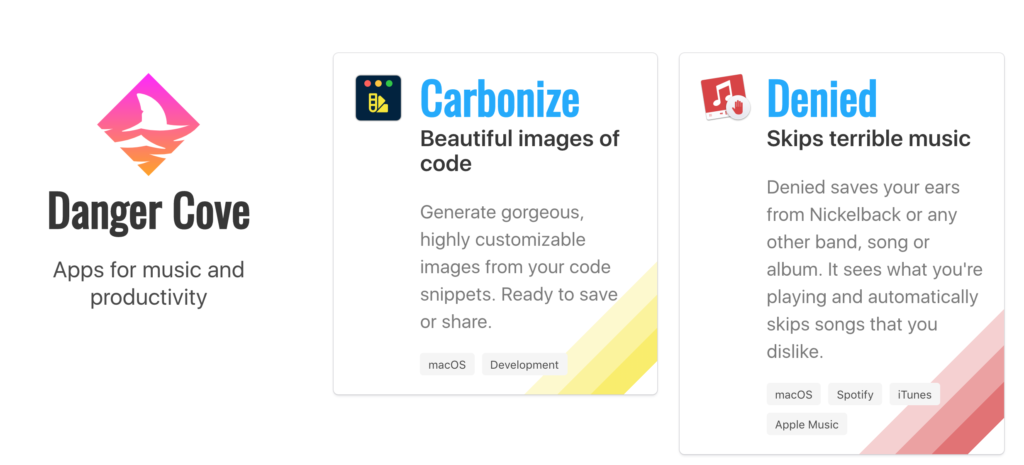
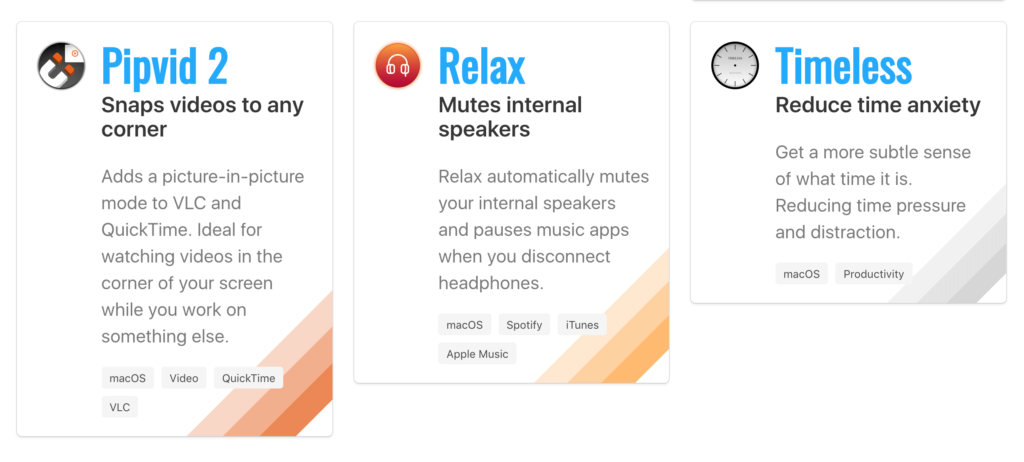
9.What are the most common mistakes founders make when they start a company?
Hire somebody to do your taxes. Not doing it will put you in trouble. Doing it yourself will take a lot of time that you could be spending on your product. Don’t settle for an online platform if you can. Hire a person that you can ask questions and just send shoebox full of receipts. I cannot recommend this enough. This goes for other distractions too. Delegate as much as you can afford.
10.What do most startups get wrong about marketing?
Announcing and launching the product on the same day. Announce ahead of time, launch later.
11. What’s the best advice you’ve ever received? And what advice do you have for someone who is interested in a similar direction?
It’s not really advice, but something that helped me relax when I first read it: “most overnight successes were years in the making”. Starting a business takes time and effort. It probably won’t pay off immediately, or at all.
I’m also a fan of the ‘vitamin vs. painkiller’ analogy. Some products fix a problem so well that it would be crazy not to use it. These are painkillers, they sell themselves.
If you have to really convince somebody to try your product, it’s a vitamin. Vitamins are much more common and some are very successful, but it’s the painkillers you’re after.
12. What are the one or two things that you would do differently if you could go back to 10 years ago?
Enjoying success. Looking back, it’s easy to see when things were going well. At the time, not so much. I never fully appreciated my apps paying for rent, until revenue started to decline. Besides the above, I’d encourage myself to spend more time exploring collaborations and building an audience.












